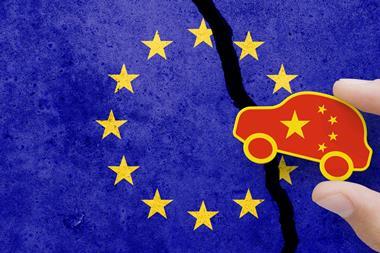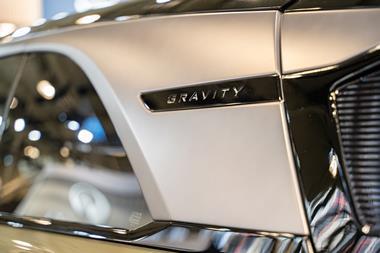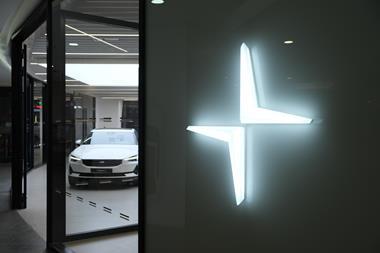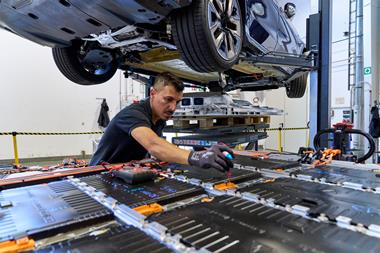Major automotive suppliers including Bosch and Continental announce massive workforce reductions as electric vehicle market challenges intensify European manufacturing sector’s most significant restructuring in decades.

European automotive suppliers are experiencing unprecedented turbulence as electric vehicle market uncertainties trigger a wave of dramatic workforce reductions. Major manufacturers are confronting a perfect storm of economic challenges that threaten the industry’s traditional foundations.
”OEMs and tier suppliers are facing a toxic mixture of factors…”
Daniel Harrison, Automotive Analyst, Ultima Media
In a stark illustration of the sector’s volatility Robert Bosch, ZF Friedrichshafen, Continental and Schaeffler have collectively announced 54,000 job cuts in 2024. This figure represents a record number of redundancies surpassing those announced during the pandemic years of 2020 and 2021 combined according to the European Association of Automotive Suppliers (CLEPA).
A (tangled?) web of challenges for automotive production: Job losses
The scale of restructuring reflects multiple interconnected challenges. Vehicle production has plummeted by 20 per cent or 3.2 million units since pre-pandemic levels. Electric vehicle investments have dramatically contracted to €5.64 billion ($5.87 billion) in 2024 – the lowest point since 2019 – driven by weaker than anticipated market demand.
Individual company strategies highlight the industry’s broader pressures. Bosch plans to eliminate up to 5,500 jobs and reduce working hours for 10000 employees. ZF Friedrichshafen has announced it will lay off 12,000 employees in Germany by decade’s end as part of a €6 billion ($5.06 billion) global savings programme. Schaeffler will also slash 4,700 jobs across Europe including 2,800 cuts at its German sites. Continental aims to reduce 7,150 jobs worldwide by 2025 while restructuring its automotive components division.
”65 per cent of European automotive suppliers struggling to maintain profit above the critical 5 per cent investment threshold”
Automotive manufacturing’s ongoing crisis and plummeting profit margins
Daniel Harrison, Automotive Analyst for Ultima Media commented, ”OEMs and tier suppliers are facing a toxic mixture of factors: Volumes remaining stubbornly and structural lower than pre-Covid, high energy and labour costs making production costs uncompetitive, contributing to dwindling Chinese exports sales, resulting in Europe shifting from being a net exporter to a net importer, and compounded by the emerging threat of drastically cheaper Chinese EVs flooding Europe.”

The situation has grown so critical that Webasto, a roof system technology supplier, announced comprehensive restructuring negotiations under a chief restructuring officer in response to what it termed an “ongoing crisis” in automotive manufacturing.
The underlying dynamics rest on precarious profitability margins, with 65 per cent of European automotive suppliers struggling to maintain profit above the critical 5 per cent investment threshold.
This financial strain complicates future technology investments and innovation strategies.
“While the decline in demand reflects serious structural challenges for Europe’s automotive industry it also underscores the need to unlock the region’s full potential for mobility innovation”
- Benjamin Krieger, Secretary General, CLEPA
Despite the challenges there are opportunities for European automotive suppliers
Despite these challenges some optimism remains. Battery-electric vehicles and plug-in hybrids are forecast to constitute 27 per cent of overall vehicle production in 2025 up from 20 per cent in the previous year. However industry caution persists with two-thirds of CLEPA members expecting battery electric vehicle market share to remain below 50 per cent by 2030.
CLEPA’s Secretary General Benjamin Krieger emphasised the broader implications. “While the decline in demand reflects serious structural challenges for Europe’s automotive industry it also underscores the need to unlock the region’s full potential for mobility innovation” he stated. He highlighted the critical importance of “access to funding investment support and technology-neutral regulation” in maintaining Europe’s global automotive technological leadership.
Read the article: VW’s plant closures illustrate industry’s existential crisis
The unfolding transformation represents a cyclical downturn while simultaneously signalling a fundamental recalibration of European automotive manufacturing as the industry steers through the complex transition towards electrification, sustainable technologies and new mobility paradigms.






































No comments yet